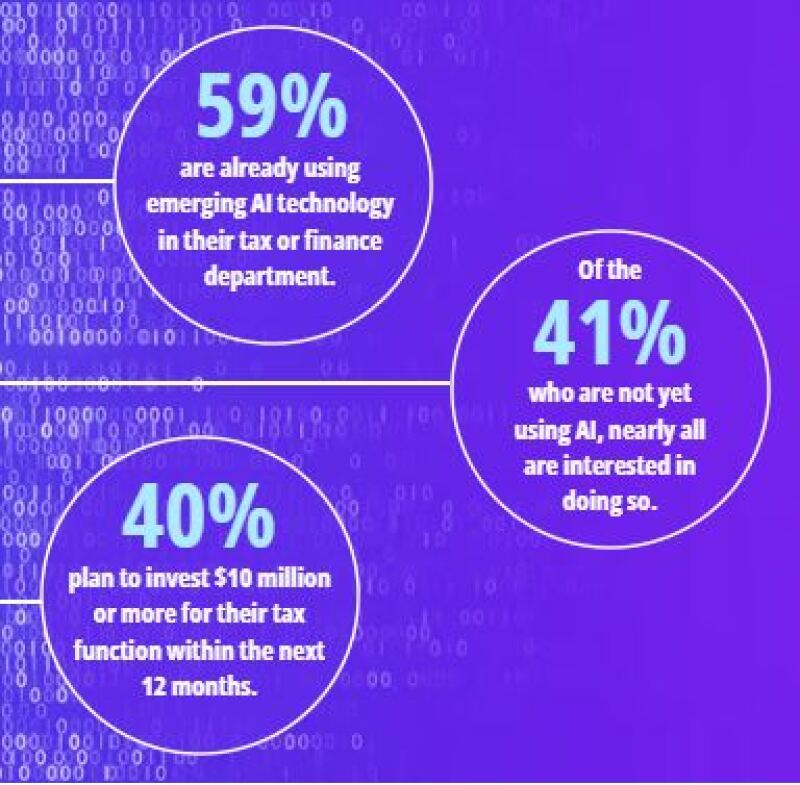Introduction
Whatever the tax issue – addressing regulatory compliance, responding to market events and new tax legislation, or hiring talent – one of the underlying solutions lies with technology and innovation.
KPMG’s survey of 500 C-suite executives at large companies emphasises the role that technology and AI will play in tax’s transformation as it expands its mission from a compliance function to a broader value creator for the business. Already, tax departments are helping to power corporate innovation and prepare their companies for financial challenges – from sustainability and regulation to risk management. With the corporate tax landscape growing increasingly complex, investment in the tax department has become linked to an organisation’s long-term health. Tax, reimagined, is expected to be a strategic powerhouse.
AI – the next frontier for tax departments
C-suite leaders agree that AI is the next frontier for tax departments and are eager to move forward. And they are willing to bet big. Many say they plan to make significant investments in the next year.

When tax comes face-to-face with ESG
It’s no secret: the intersection of tax and ESG has risen to the top of the C-suite agenda, with increased pressure from stakeholders and regulators to provide greater transparency on how companies are meeting their tax obligations.
Why is your organisation unprepared to disclose its total tax contributions?
Only 10% say their organisation is currently prepared to share its total tax contributions.
Measured speed – the 21st-century business currency
As the pace of change quickens, leaders should be nimbler when addressing challenges or could risk losing their competitive advantage. Many organisations have turned to alternative sourcing models to equip and strengthen their tax departments with the necessary skill sets and technologies for proper data analysis.
The percentage of companies willing to outsource or co-source their tax functions
These fluctuations likely represent organizations trying to keep their footing in the face of significant tax legislative and regulatory changes, the disruptions caused by the pandemic, inflation, and the Great Resignation.
A convergence of tax and tech – the anatomy of the modern tax professional
While accountants and tax attorneys will always remain the backbone of the tax profession, C-suite leaders are realising data is the key to unlocking value from their tax departments and are beginning to seek out technologists and data scientists for certain parts of their organisation.
Who would you rather hire for your tax department?
Although more leaders still prefer to hire tax experts who can learn technology (54%), more 2023 respondents expressed a willingness to hire technology experts who can learn tax (46%), compared to 43% in 2022 and 41% in 2021.
AI is expected to create a corporate reality of the ‘haves’ versus the ‘have nots’ between those who adopt the technology to transform their tax departments and those who get left behind. KPMG has been investing in AI for more than a decade. By putting AI technology in the hands of KPMG professionals, we’re helping to change the game in how they serve and deliver for clients.

The modern tax department has a different seat at the leadership table than it did in the past. As a department of versatile, tech-savvy strategists, the tax department of the future has its eyes around the corner and has the opportunity to be every company’s hidden advantage.

If you would like to learn more about the topics covered in the Tax Reimagined 2023: Perspectives from the C-suite report, please contact KPMG to continue the conversation.
Read the original version of the article on KPMG’s website.
Click here to access more KPMG Future of Tax content.














